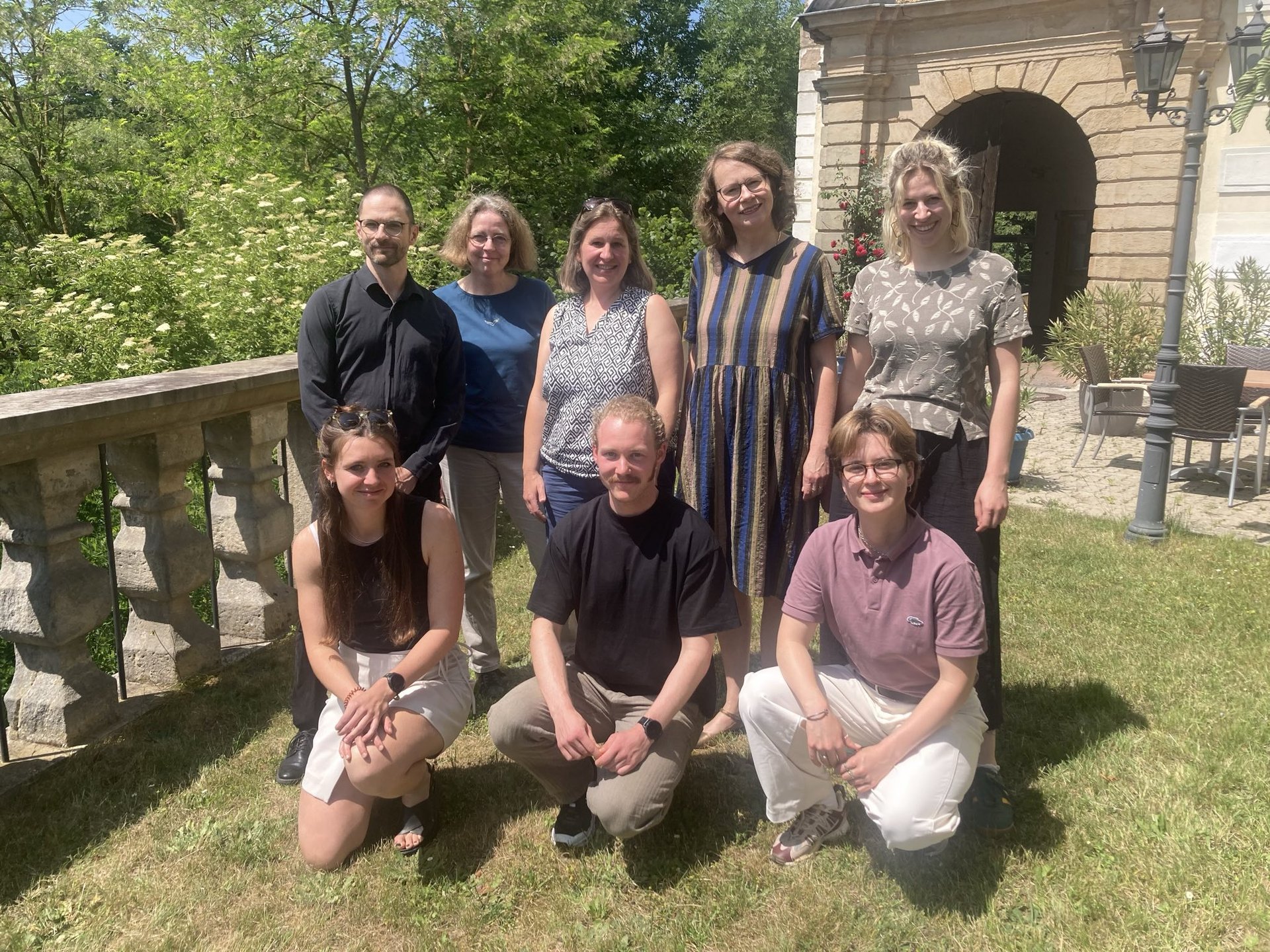Equal Opportunity

The SFB has established its own organisational contact point for equality issues: the Equal Opportunities Commission, whose chair is the SFB's equal opportunity officer. This position corresponds to the equal opportunity officer in the individual faculties. Anne Tittor is the SFB’s current equal opportunity officer. The current members of the Equal Opportunity Commission are
Petra Gümplova, Bettina Hollstein, Malte Janzing, Henrike Katzer, Antje Linkenbach-Fuchs (the MWK [Max Weber Centre] representative for equal opportunity) Jörg Oberthür, Noëmi Burgenmeister, Cinnamon Ducasse, Paula Klöcker, Pauline Stockmann, Anne Tittor und Lara Rössig
The aim of the Equal Opportunities Commisson is to strengthen equality and diversity in the Collaborative Research Center on Structural Change of Property from an intersectional approach.
Given the Basic principles of the DFG’s work in the area of equal opportunity and diversity, we also maintain that no one in academia should be disadvantaged because of their gender, sexual identity, (social, geographical, or ethnic) origin, age, health status, religion, or due to racism. To counteract structural inequalities, including in higher education, we want to actively involve people with different experiences and perspectives and see them as enriching to our research and debates. As a collaborative research centre on the theme of property based at East German universities, we also feel it is important to involve people who were socialised in East Germany and come from non-academic backgrounds.
- Email: anne.tittor@uni-jena.de
Activities of the Commission
1. It monitors recruitment processes within the SFB and promotes more diversity among staff members. A key target is to increase the proportion of female researchers among postdocs and principal investigators. Improvements have been made in this regard in recent years, but gender parity remains our goal. We would also like to see an increase in the SFB in the proportion of people with non-academic backgrounds and experience of racism and migration and therefore advertise job vacancies specifically on relevant distribution lists and portals.
2. The Equal Opportunity Committee strives to ensure that committees and working groups within the SFB are diverse and that people of different genders and backgrounds speak at public events organised by the SFB.
3. The Equal Opportunity Committee believes that issues of property are fundamentally shaped by inequality. In this respect, we try to make intersectional perspectives (more) visible in debates on property.
4. The Equal Opportunity Commission discusses and drafts equality measures and submits plans for the equal opportunity budget and targeted measures to the SFB management, which makes the final decision on the allocation of funds. SFB members are invited to contact the Equal Opportunity Commission to communicate their needs, requirements, and problems and, if possible, to find solutions that can be funded by SFB funds.
5. In the first funding phase, the Equal Opportunity Commission conducted a needs assessment on specific requirements in the area of equal opportunity and diversity and initiated a discussion on the compatibility of science and family life. As a result, SFB meetings should generally be scheduled between 10 a.m. and 5 p.m. and long weekends should be avoided. In addition, childcare can be provided at SFB conferences and workshops if required. Thanks to the pooling of equal opportunity resources from various third-party funded projects and networks, it is now possible to offer a wide range of training courses and workshops on equal opportunity and diversity for all members of the SFB through the University of Jena's Network WKJ. Individual coaching is also available for young female researchers.
6. The Equal Opportunity Commission strives to raise awareness of gender-specific speech patterns within the SFB. To this end, it has adopted a set of guidelines that propose the use of different participation methods designed to lower the threshold for active participation (e.g. buzz/whispering or breakout groups, card polling, etc.). In addition, a double quota system (by gender and first speaker) is generally used for speaking lists at SFB events.
All members of the Equal Opportunity Commission can be contacted regarding equal opportunities, diversity, work-life balance issues, and complaints (harassment, violence, discrimination). The committee and the equal opportunity officer work closely with the various organisations at the Universities of Jena and Erfurt that perform related functions. Depending on the case, different university units may be relevant to the issue, and the SFB's Equal Opportunity Committee will help establish contact with them. This applies in particular to all formal aspects of employment, as SFB members are employees of the respective universities and therefore enjoy the full rights and obligations of those institutions.